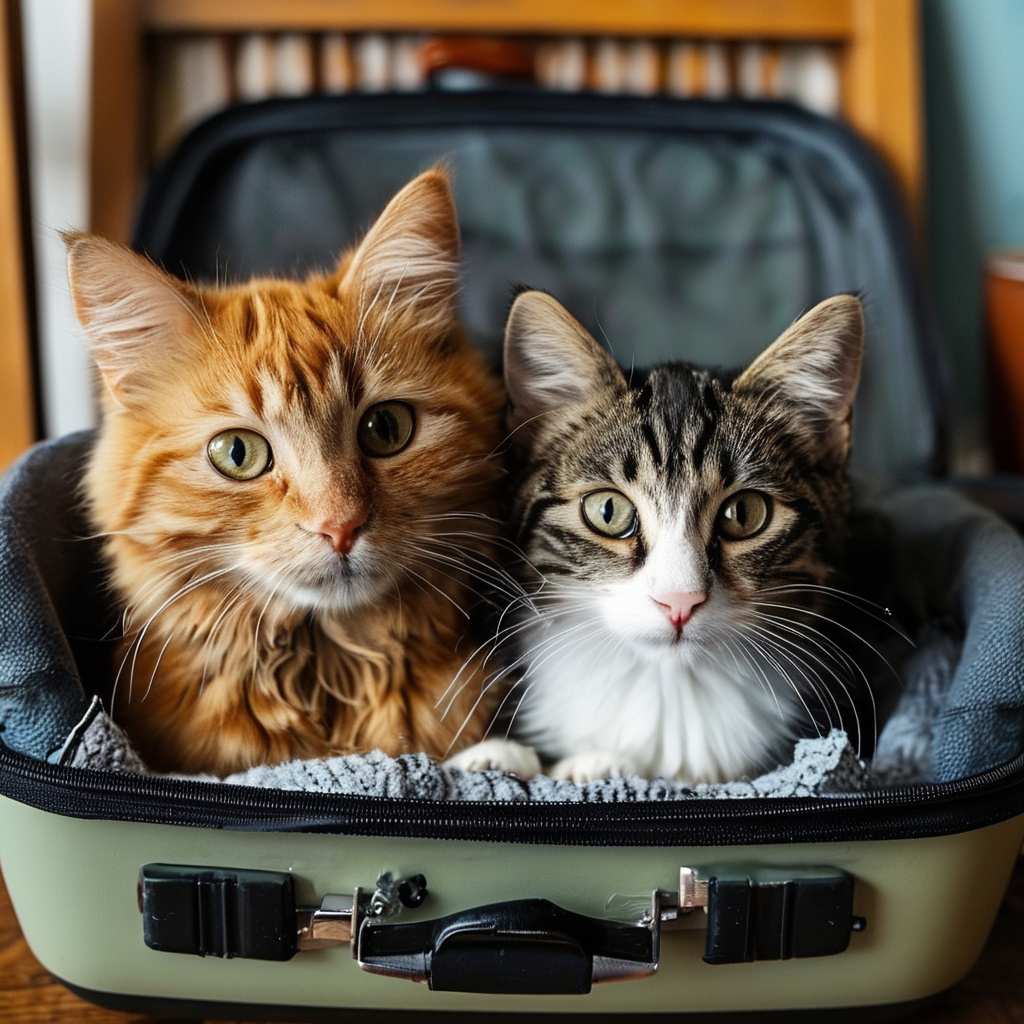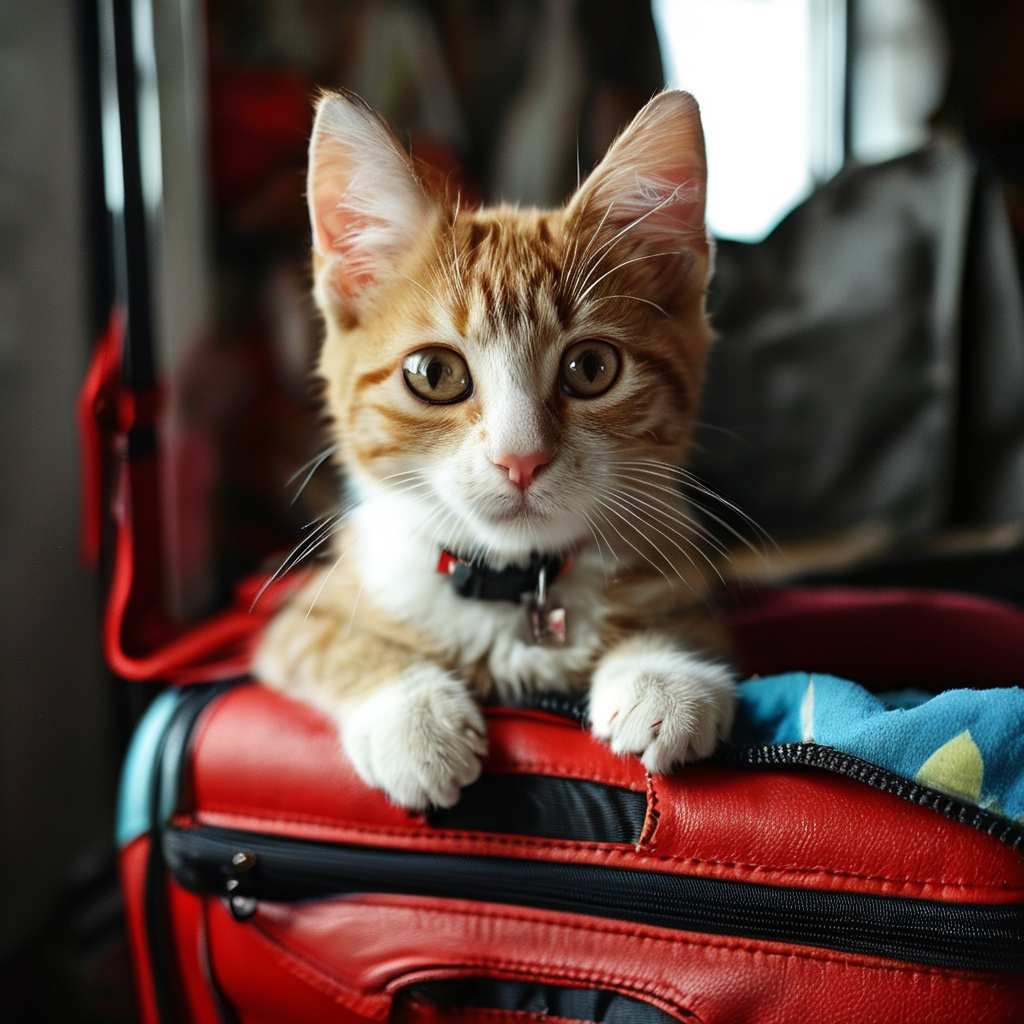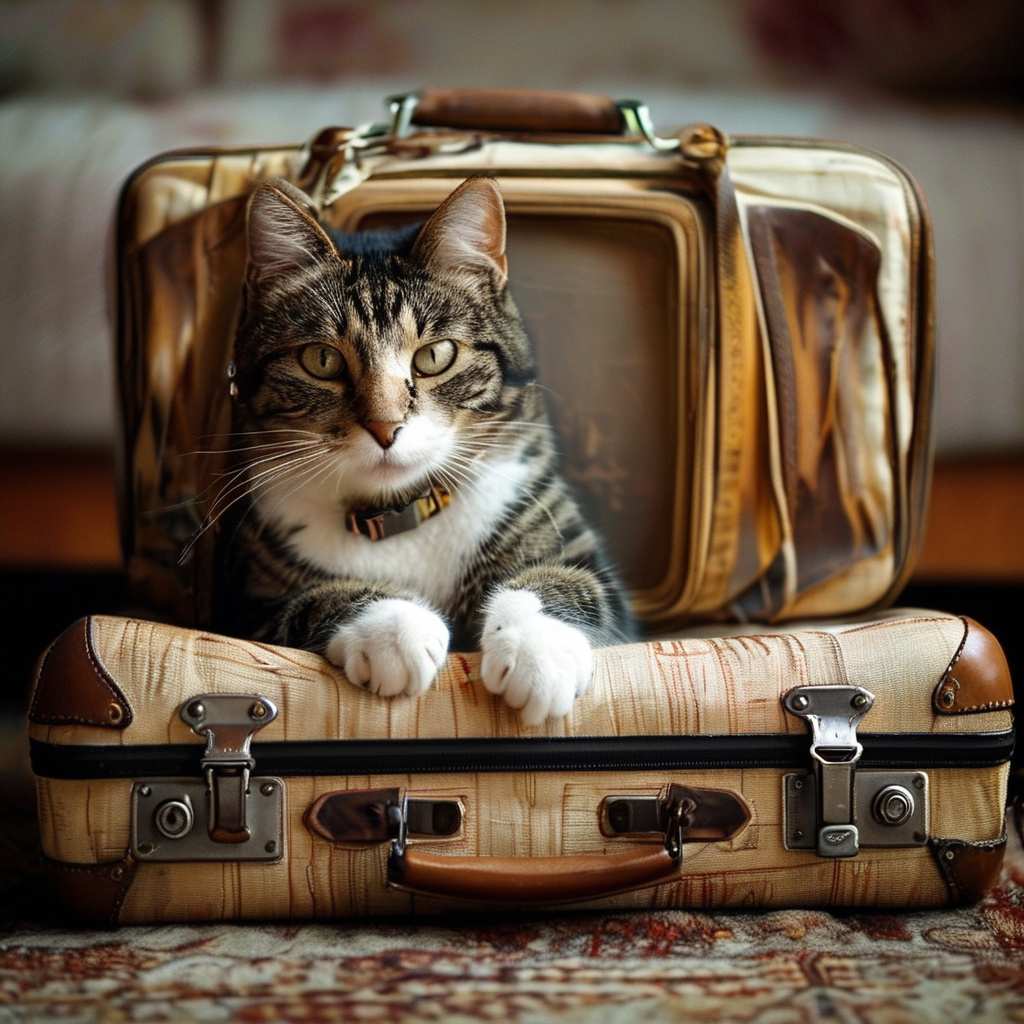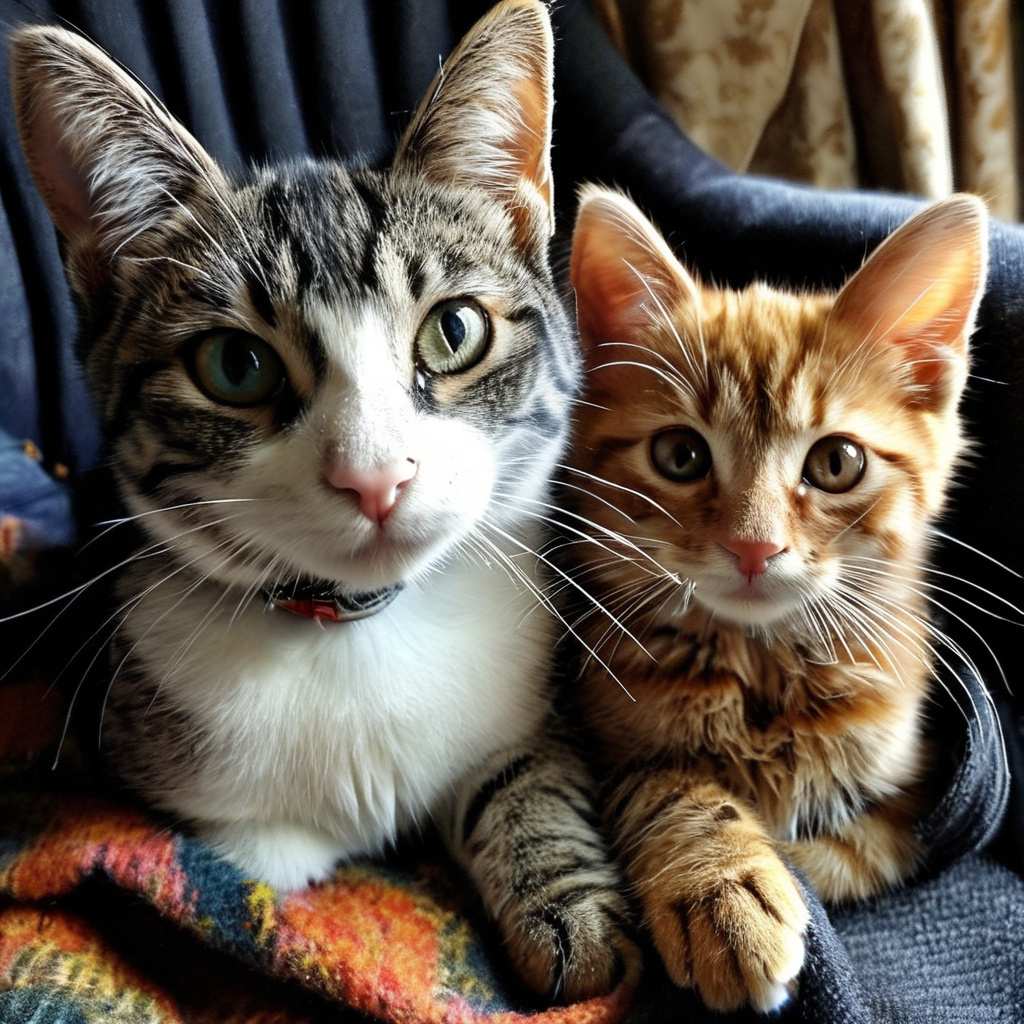Introduction:
Cats, though often perceived as independent and reserved, are deeply sensitive creatures that express their emotions in subtle yet meaningful ways. After a long absence, many cat owners may find their pets acting differently—perhaps more distant, stressed, or anxious. Understanding your cat’s individual personality and how they respond to changes is key to ensuring their well-being. By being patient and allowing them to adjust at their own pace, you can help your cat feel comfortable and loved once again, even after a significant time apart.
 It might seem like cats aren’t as expressive as dogs and can’t show their affection and attention to their owners. That couldn’t be further from the truth! They’re sensitive, delicate, and fragile animals that express emotion in their own unique way. It’s helpful to pay attention to cats so you can recognize their messages. It’ll also be easier to understand your cat’s behaviour when we return after a long absence.
It might seem like cats aren’t as expressive as dogs and can’t show their affection and attention to their owners. That couldn’t be further from the truth! They’re sensitive, delicate, and fragile animals that express emotion in their own unique way. It’s helpful to pay attention to cats so you can recognize their messages. It’ll also be easier to understand your cat’s behaviour when we return after a long absence.
Related Post: Everything You Need to Know About the Lively and Lovable Miniature Schnauzer
Cats are all different, and they often have different personalities. Not all cats react the same way to the same things. Some cats are more expressive and like to be close to their carers, following them around and joining in with their activities. They’re very vocal and always let us know what they’re up to. They’ll even bring your favourite accessories and then happily retrieve them as if to say, “Hey, let’s have some fun!” Other cats are the opposite. They usually fall asleep and only communicate with their owners to get a meal or not at all. Your cat’s temperament and personality also affect how they feel and how they act when you get back from a trip.
Holiday with the cat at home
Related Post: Catnip and Feline Euphoria: A Closer Look at the Science Behind the Magic Herb
 It’s possible that your cat won’t change their behaviour when you get back from a long vacation. But more often than not, you’ll notice a visible and even remarkable change. Even if someone else is looking after the cat while you’re away, it can still feel isolated from its owner and experience stress. Cats don’t like change, and they need a stable environment to feel secure. Even if the cat has stayed in the house and someone comes to take care of it, it often feels insecure and remains a little alert. Sometimes, cats eat less or even refuse to eat at all because of this. It’s the same with fun. They often don’t want to play and don’t react to their favourite accessories when their favourite caregiver isn’t around. As time goes on, the situation gets worse. When we finally get back, the cat might feel happy to see us, but it might also show behaviour that seems like it’s saying, “I’m not happy with you.”
It’s possible that your cat won’t change their behaviour when you get back from a long vacation. But more often than not, you’ll notice a visible and even remarkable change. Even if someone else is looking after the cat while you’re away, it can still feel isolated from its owner and experience stress. Cats don’t like change, and they need a stable environment to feel secure. Even if the cat has stayed in the house and someone comes to take care of it, it often feels insecure and remains a little alert. Sometimes, cats eat less or even refuse to eat at all because of this. It’s the same with fun. They often don’t want to play and don’t react to their favourite accessories when their favourite caregiver isn’t around. As time goes on, the situation gets worse. When we finally get back, the cat might feel happy to see us, but it might also show behaviour that seems like it’s saying, “I’m not happy with you.”
The cat that used to greet us happily when we came home now lies down somewhere and doesn’t even look at us.
The cat that used to bring mice to play with doesn’t even react to our encouragement.
Related Post: The Unique Charm of Thai Cats: A Return to the Original Siamese Look
The cat that used to eat a lot has no interest in a fresh, fragrant portion of food. Our return is another change for the cat, so it’s understandable if she’s a bit stressed and nervous. Things we bring home (like suitcases) and our clothes and shoes have new smells on them. This can cause a bit of tension at first, but the cat will get used to the new smells and stop holding on to them.
Related Post: Understanding Veterinary Diets: Purpose, Benefits, and Proper Usage
 What’s the best way to help your cat adjust when you come back from vacation?
What’s the best way to help your cat adjust when you come back from vacation?
It’s possible to help a cat adjust to a change like this. Let your cat take her time and do everything at her own pace. There’s no need to rush her and don’t stop her from smelling suitcases or other objects. It’s best to let the cat see everything. Once he’s had a chance to get used to all the new things, he’ll probably start paying attention to his caregivers. It might be a good idea to talk to her calmly and show her you’re happy to see her when she comes back. It’s worth noting that cats tend to handle holiday breaks better if they stay at home and someone they know comes to take care of them.
 It can be tough when a new person comes in, and it can be really stressful when the cat has to move while the carer is away. This adds to your cat’s stress levels, weakens her immunity, and makes her recovery take longer.
It can be tough when a new person comes in, and it can be really stressful when the cat has to move while the carer is away. This adds to your cat’s stress levels, weakens her immunity, and makes her recovery take longer.
If someone your cat knows wants to come and visit at least twice a day while we’re away, it’s a great way to keep your cat comfortable and healthy.
Conclusion:
Helping a cat adjust after your return from vacation requires patience and sensitivity. Cats thrive in stable environments, so any disruption, including your absence, can cause them stress. It’s important to allow your cat to re-acclimate at their own pace, letting them explore and get comfortable with new smells or objects. By creating a calm and familiar atmosphere, you can gradually help your cat return to their routine and restore the bond you both share. Ultimately, the care you provide, both during your trip and upon your return, ensures your cat feels secure and happy again.
FAQs:
- How do cats typically react when their owners return from vacation?
Cats may act distant, refuse food, or seem uninterested in their usual activities as they adjust to their owner’s return. This behavior is often temporary and a response to stress or change. - Why does my cat seem stressed after I come back from a trip?
Cats dislike changes in their environment or routine. Your absence, combined with new smells or objects (like suitcases), can create tension for them, causing stress upon your return. - What can I do to help my cat adjust after a long absence?
Give your cat time and space to explore and get used to any new changes. Speak calmly, allow them to sniff suitcases, and avoid rushing them into their old routine. - Is it better to leave my cat at home while I’m away?
Yes, cats tend to handle absences better when they remain in their familiar environment with someone they know to take care of them, as opposed to moving them to a new place. - Why does my cat eat less or refuse to eat when I’m away?
Cats often experience stress when their owners are gone, which can lead to a loss of appetite. This usually resolves once they feel more secure again after your return. - Should I be worried if my cat ignores me after I return?
Not necessarily. Cats may seem indifferent or even upset when you first come back, but this behavior typically fades as they re-adjust to your presence. - What can cause prolonged stress in cats after a vacation?
Major disruptions like having to move to a new place or being cared for by unfamiliar people can increase a cat’s stress, leading to a longer adjustment period after you return.
References:
- ASPCA – American Society for the Prevention of Cruelty to Animals
- Humane Society of the United States
- PetMD – Pet Health & Care Advice from Real Vets
- Cattime – Information on Cat Breeds and Care
- The Spruce Pets – Pet Care Tips and Advice
- American Kennel Club – Pet Care Resources
- VetStreet – Veterinary Advice for Pet Owners
